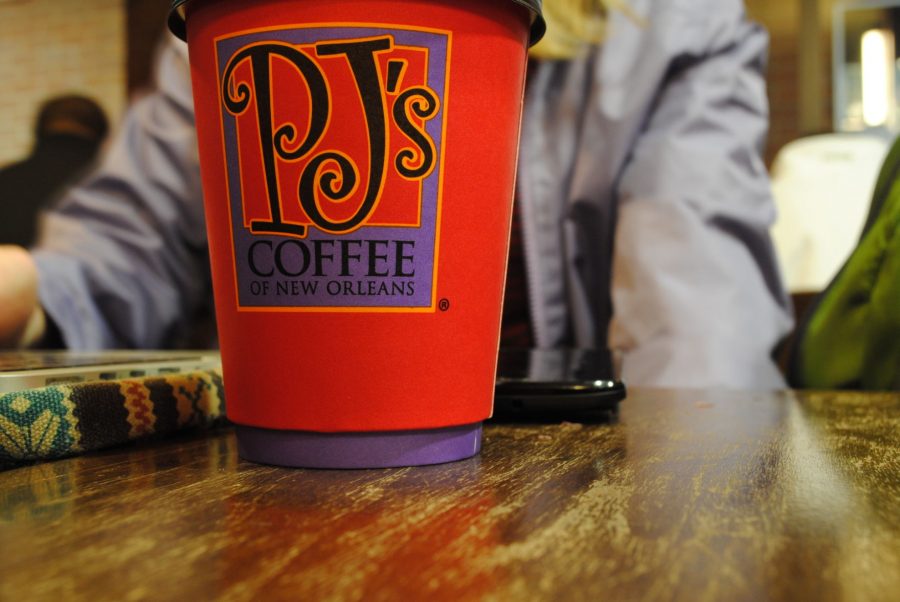Redesigned PJ’s coffee sleeves address sexual assault
USG and PJ’s Coffee have partnered to distribute 52,000 coffee sleeves listing resources for sexual assault survivors.
February 24, 2016
The executive board of Tulane’s undergraduate student government is allocating $2,340 of its own operating budget to print 52,000 sleeves for use at PJ’s Coffee, advertising on-campus resources for sexual assault survivors.
The newly designed sleeves have been ordered and will likely arrive on campus in late March, where they will be distributed at all on-campus PJ’s locations. USG calculates that the supply of sleeves will last until the end of fall semester 2016, and funds have already been budgeted to order a new batch next spring.
“As long as sexual assault is still a problem there will be survivors, and we need to be supporting them as a community,” said Josh Rosenbaum, a sophomore USG senator for the School of Liberal Arts. “I had the idea to use PJ’s coffee sleeves, which is something that gets into the hands of many Tulane students, as a means to get out the information for the resources that are available to students on campus.”
The 24-hour hotline for Tulane’s Sexual Aggression Peer Hotline & Education will be printed on the sleeves, as well as the number for Tulane Counseling and Psychological Services and Tulane Case Management and Victim Support.
“It’s such a genius idea,” SAPHE President and senior Tara Wilson said. “Within the last few years of student activism around ending sexual assault on campus, people are much more aware of SAPHE than they had been, but this is another great step forward.”
SAPHE is a strictly confidential catch-all support system for students who have suffered sexual assault or trauma. Student volunteers are available 24/7 to provide a listening ear and direct callers to appropriate avenues for treatment.
“Having a presence in the minds of students will hopefully get people to think of us when they’re trying to help out a friend or need to help themselves,” Wilson said. “The feeling of isolation survivors often have can really negatively affect mental health and harm a survivor’s recovery in the long run.”
In addition to advertising the university’s resources, the coffee sleeves are intended to raise consciousness about an issue that is often kept in the dark. USG hopes that the coffee sleeves will be a productive step towards building awareness around issues of sexual violence and making sure that all students are aware of the resources available to them.
“This is some of the most amazing work I’ve seen from a senator,” USG President Madeline Hicks said. “It’s a simple, creative solution to getting information out there. I know they’re little pieces of paper, but this is really big. This is the kind of leadership we want to see from students.”
According to data from a preliminary climate survey presented in September 2015, the frequency of sexual assault on campus at Tulane is on par with that of other universities, with approximately one in five students experiencing sexual assault. When the data was presented, though, Scott Tims, assistant vice president for campus health, stressed these numbers were most likely low due to the scope and preliminary nature of the survey.
Hicks’s only initial concern about the coffee sleeve project was whether PJ’s would be willing to sign on. According to Rosenbaum, they were completely receptive from the start.
“Why wouldn’t we be?” said Christian Petersen, senior marketing manager of Ballard Brands, the parent company of PJ’s. “We’re definitely all about supporting that kind of issue on campus.”
Rosenbaum emphasized that while the coffee sleeves are a good first step, it’s only half of the equation when it comes to ending sexual violence on campus.
“It’s a small step in a fight that I think has to be taken in two veins,” Rosenbaum said. “While supporting survivors we also need to be taking steps towards institutional change, on cultural change, to end this issue in the long run.”























Leave a Comment